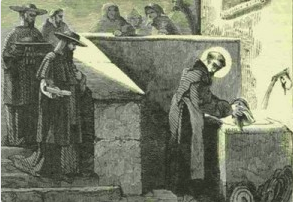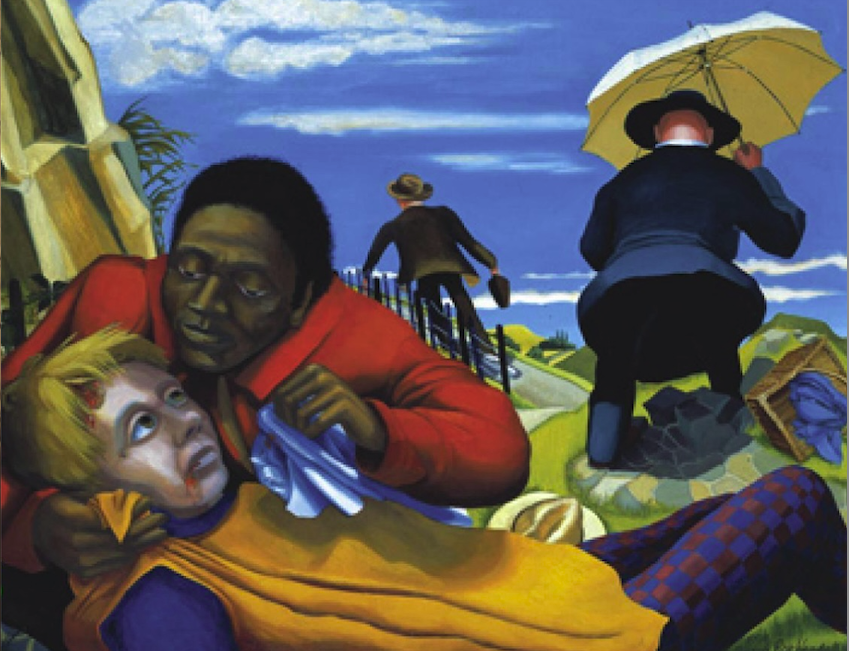These reflections are a result of more than 40 years of ministry as a Roman Catholic priest. Most of these years I spent in the Diocese of Charlotte which covers Western North Carolina. Now I am retired, and live in Medellín, Colombia where I continue to serve as a priest in the Archdiocese of Medellín.

God spoke further to Moses, "Go and assemble the elders of Israel, and tell them: The LORD, the God of your fathers, the God of Abraham, Isaac, and Jacob, has appeared to me and said: I am concerned about you and about the way you are being treated in Egypt; so I have decided to lead you up out of the misery of Egypt into a land flowing with milk and honey." (Ex 3:13-20)
https://bible.usccb.org/bible/readings/071725.cfm
The Biblical story of the liberation from Egyptian slavery has been a sign of hope and God’s favor for oppressed peoples in every age. Liberation Theology is not new. God has always been on the side of the oppressed and the downtrodden. Sometimes the church has been, too. https://youtu.be/gtLcELU1brA?si=PVOsNC--SIwzLakR

But Moses said to God, "Who am I that I should go to Pharaoh and lead the children of Israel out of Egypt?" He answered, "I will be with you; and this shall be your proof that it is I who have sent you: when you bring my people out of Egypt, you will worship God on this very mountain." (Ex 3:1-6, 9-12)
https://bible.usccb.org/bible/readings/071625.cfm
God calls whom God wills. Even though Moses protests, God promises: I will be with you. End of discussion. The feast of Our Lady of Mount Carmel was approved in 1226, but Mount Carmel has been a holy place since the days of the Prophet Elijah (850 BC).

When the child grew, she brought him to Pharaoh's daughter, who adopted him as her son and called him Moses; for she said, "I drew him out of the water." (Ex 2:1-15a)
https://bible.usccb.org/bible/readings/071525.cfm
Moses gets his name from the Egyptian word for water or to draw water. Of course, Moses will draw his people to freedom. When the papal representatives arrived at the monastery to give Saint Bonaventure the cardinal’s hat (the galero), it happened to be his day to wash dishes for the community. So he made the papal representatives wait until he had finished the dishes. They got tired of waiting and left the cardinal’s hat hanging in the tree in the garden. Today’s hymn in honor of Saint Bonaventure is from an East Indian Catholic Community. https://youtu.be/hOOErecY-mY?si=L8TkCQTWFFPGqDcp

A new king, who knew nothing of Joseph, came to power in Egypt. He said to his subjects, "Look how numerous and powerful the people of the children of Israel are growing, more so than we ourselves! Come, let us deal shrewdly with them to stop their increase; otherwise, in time of war they too may join our enemies to fight against us, and so leave our country." (Ex 1:8-14, 22)
https://bible.usccb.org/bible/readings/071425.cfm
Ancient Egypt, Nazi Germany, Ku Klux Klan, MAGA USA. The justification for violence against immigrants and those who are different always smells and sounds the same throughout human history. Saint Kateri Tekawitha (1656-1680), the first indigenous saint in the USA was canonized in 2012. The indigenous suffered the scars of European diseases, and the loss of their lands and freedoms. Saint Kateri found refuge in Christ. https://youtu.be/2T1t3iq7uNQ?si=MxghXamM2lnxagDE

There was a scholar of the law who stood up to test Jesus and said, "Teacher, what must I do to inherit eternal life?" Jesus said to him, "What is written in the law? How do you read it?" He said in reply, "You shall love the Lord, your God, with all your heart, with all your being, with all your strength, and with all your mind, and your neighbor as yourself." He replied to him, "You have answered correctly; do this and you will live." But because he wished to justify himself, he said to Jesus, "And who is my neighbor?" (Lk 10:25-37)
https://bible.usccb.org/bible/readings/071325.cfm
“Who is my neighbor?” is the all important question in a world like ours. In response Jesus gives us the Parable of the Good Samaritan. Who was neighbor to the man in the ditch? The answer comes, “The one who treated him with mercy.” And Jesus replies, “Go and do likewise.” Being merciful is not ‘woke.’ Being merciful is what Christ commands. https://youtu.be/YYjurJyJN7g?si=jtvd4PZpLdK-FWEb



